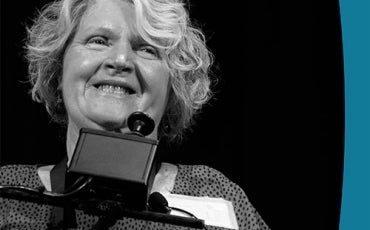Annual Report 2021-2022

Complaint Statistics 2021-2022
Download PDF | Download Word
You can access the Australian Human Rights Commission 2021 – 2022 Annual Report at the Australian Government Transparency Portal.
The year in review
The 2021–22 financial year has been an extremely challenging one for the Australian Human Rights Commission, as we have sought to secure the institution’s financial sustainability, faced threats to our international standing and institutional integrity, and strived to meet the demands for our investigation and conciliation services, for Australians’ COVID-related issues as well as an increase in discrimination related complaints.
Over the past year, financial pressures that had been building over many years culminated in an unsustainable financial situation which was reported to the Attorney-General, the Minister responsible for the Commission, as a significant issue. Through independent review it became clear that, for some time, the Commission has been structurally underfunded and that we had also been operating beyond our annual funding sources. This meant that we were no longer able to maintain the staffing levels that would enable us to undertake our statutory functions properly. A cash injection of $16 million was approved by the Government in the MYEFO budget process in December 2021 as an initial step to address the financial sustainability of the Commission.
Alongside this, the Commission undertook substantial changes to strengthen our systems, procedures, and operations over the entire financial year period. We significantly reduced our expenditure, by first freezing recruitment and non-critical expenditure, then by reducing our staffing profile. As a result, the work programs of our Commissioners was heavily reliant on the ability to source short-term funding from external sources. All Commission work areas are operating with reduced capacity that is limiting our ability to deliver our functions.
With the support of a Tripartite Steering Committee, of the Attorney-General’s Department, the Department of Finance and the Commission, the evidence base for the long-term funding needs of the Commission has been prepared for government’s consideration in the October 2022 Federal Budget.
Our institutional integrity has also been under challenge, with the Commission’s ‘A status’ as a national human rights institution (NHRI) under threat. In March 2022, the Sub-Committee on Accreditation (SCA) of the Global Alliance of National Human Rights Institutions conducted its regular, five yearly review of the Commission’s compliance with the Paris Principles relating to the status of national institutions. These principles set out the necessary conditions for a national human rights institution to be considered robust and credible – a sufficiently broad mandate to protect and promote human rights, the necessary independence from government to hold it to account, and the resources to perform its functions appropriately. National human rights institutions that meet these standards are accredited as ‘A status’ and accorded participation rights in United Nations human rights processes. The existence of an A status NHRI is an international marker of a government's commitment to promoting and protecting human rights, with over 120 nations having such institutions across the globe.
The SCA decided to defer a decision on the accreditation of the Commission until October 2023, rather than re-accrediting our institution, because of concerns about the selection and appointment process of Commissioners, while also noting the resourcing challenges being faced by the Commission. This is the first time that the A status of the Commission has been in doubt.
In addition, the work of the Commission has increased substantially over the course of the past two years because of the COVID-19 pandemic. Overall, we have experienced an unprecedented increase in the number of complaints received, from a pre-COVID five-year average of 15,000 inquiries and 2,000 complaints a year, to 23,200 inquiries and 3,736 complaints in 2021–22, 1,960 of which were complaints under the Disability Discrimination Act.
I must commend the efforts of our staff during this time. They have faced enormous work pressures in addressing the unprecedented increase in complaints and inquiries, they have supported our statutory Commissioners with manifestly inadequate staff and resources, and they have implemented major reforms to our governance and financial management practices. This has been done in a period of great upheaval and an environment of great uncertainty. I acknowledge the significant impact on them and thank them wholeheartedly.
Over the financial year, the Commission has instituted significant reforms to its internal governance and financial management frameworks to ensure rigorous accountability and oversight. We have implemented these reforms with the close involvement, advice and support of our external Audit and Risk Committee, the Attorney-General’s Department and the Department of Finance. We have embraced the challenges before us. I am confident that as we end the financial year, we have robust systems in place.
We have, however, said goodbye to many colleagues over the course of the year, many having served the Commission for very long periods. At the end of the year, we had approximately 30% fewer staff than at its beginning. Our current staffing is not adequate to meet our statutory obligations properly, and decisions about the Commission’s budget taken in 2022–23 will be critical in determining our capacity as an agency, and potentially, our international standing and status. Those decisions will also be essential to ensure that we have independent capacity to support the work of our statutory Commissioners and address the exponential increase in discrimination and human rights complaints received over recent years.
Despite these challenges, we have continued to contribute to the protection and promotion of human rights at the national level over the course of the financial year.
As an example, when the Government needed an independent, robust mechanism to examine the culture of the Australian Parliament as a workplace, it put its trust in the Commission to deliver it. Led by the Sex Discrimination Commissioner, the Commission’s Set the Standard inquiry and report has launched a process of significant cultural reform of this key institution in our democracy. Related reforms are also being implemented in response to the Commission’s earlier Respect@Work report, to ensure the scourge of sexual harassment can be more effectively tackled through law and cultural reform initiatives.
It is telling that when the Government needed to ensure public confidence and trust in its response to allegations of abuse within the Parliament, it is the Commission to whom it turned. This trust was built due to previous work, such as the Respect@Work report, successive national prevalence studies on sexual harassment, and cultural reform partnerships across key areas such as the Australian Defence Force.
This inquiry was only possible due to a significant, single purpose short-term injection of funding to the Commission. It is a powerful example of what a properly funded Commission can achieve.
In her first full year at the Commission, the National Children’s Commissioner focused on systems reform to improve child wellbeing and ensure the ‘voices’ of children and families inform the design of policy that is meant to help them. Key reports included ‘Keeping Kids Safe and Well’ and ‘Mental health shapes my life: COVID and Kids’ Wellbeing’. She convened multidisciplinary roundtables, and contributed to policy development on several national strategies affecting children and young people, especially those living with poverty and disadvantage. The Government announced funding for the National Children’s Commissioner to develop cross-portfolio processes for consultations with children, young people and their families, to inform five national strategies over the next two years, including domestic and family violence, disability, child sexual abuse, and Aboriginal and Torres Strait Islander early years development.
The Race Discrimination Commissioner, also with short-term external funding support, launched the next iteration of the Commission’s Racism. It Stops with Me campaign, with a compelling community service announcement and associated materials challenging us to see the world through the eyes of others to understand how our ethnicity or racial background affects life experiences. After several years of advocating for the federal government to adopt a national anti-racism framework, the new Government announced funding for this and the Racism. It Stops with Me campaign for the next four years. This will provide the Race Discrimination Commissioner with the much-needed capacity to significantly advance partnerships, research, and data to address racism in Australia.
The Disability Discrimination Commissioner advanced a significant new project, IncludeAbility, to increase the employment opportunities of persons with disability by developing a website, resources for people with disability and employers, an ambassador advisory group and meeting with the diversity and inclusion practitioners and CEOs of some of Australia’s largest employers. The housing needs of people with disability were also considered through a project with Monash University where universal design principles were considered when renovating houses in Melbourne. An exhibition of the house designs was exhibited for Melbourne Design Week and featured in Architecture Australia.
The new Human Rights Commissioner entered into partnerships with key industries to develop guidance materials to meet the human rights challenges associated with the rollout of new technologies and the use of artificial intelligence in decision-making.
These initiatives were also dependent on external funding support from philanthropist organisations and corporate partners.
The Age Discrimination Commissioner continued to deepen relationships across the community sector to promote awareness of elder abuse, as well as the challenges facing older women at risk of homelessness, and to combat ageism and age discrimination in the workplace. For example, the Commission launched the What’s age got to do with it? research report, which contributed national evidence to the body of research on the existence of ageist attitudes and prejudice in Australian society and provided insights into how ageism operates within and between generations. Ongoing efforts to raise awareness of elder abuse in the community has also culminated in the release of a new elder abuse awareness video and the promotion of elder abuse awareness resources in 20 languages.
The Aboriginal and Torres Strait Islander Social Justice Commissioner continued with efforts to implement the recommendations of the Wiyi Yanu U Thangani (Women’s Voices) report. These efforts will culminate in 2022–23 with an online safety summit to contribute to a variety of national action plans and frameworks on violence against women, and a national summit of Indigenous women and girls to lay out the key elements of a new national approach to advancing the rights of Aboriginal and Torres Strait Islander women and girls.
As we look forward, the financial challenges facing the Commission will remain the dominating focus for the foreseeable future. Statutorily appointed Commissioners cannot be expected to ‘fund-raise’ in order to perform their functions. Our complaint handling section needs sufficient staff to address complaints and inquiries in a reasonable timeframe – before complaints become entrenched and too difficult to resolve. And we must have the base resourcing to maintain core corporate functions in support of these important outcomes.
There are also many exciting opportunities on the horizon. We will see the rollout of new national child engagement practices to feed into federal policy processes, and the initial stage of a national anti-racism framework, as referred to above. Long term work of the Commission encouraging the establishment of national preventive mechanisms to prevent torture, cruel, inhumane and degrading treatment will also culminate with significant external review of Australia’s progress to achieve this (by the United Nations Sub-Committee on the Prevention of Torture and a periodic review by the United Nations Committee Against Torture), as Australia faces a deadline in January 2023 to have appropriate oversight mechanisms in place. The Human Rights Commissioner will bring together her Commissioner colleagues from the AHRC and state and territory commissions, state, territory and federal governments, oversight bodies and NGOs, to contribute to a pathway to fully implementing appropriate preventive oversight mechanisms in all Australian jurisdictions by 2023.
Law reform occurs over a long horizon. Work of the Commission today may not be realised for several years – or may even take decades to come to fruition as, for example, the implementation of a recommendation in the Bringing Them Home report of 1997 to provide financial compensation to members of the stolen generations, which was finally implemented by the federal Government in 2022. Achieving the implementation of Respect@Work has been a multi-year endeavour and, over this coming financial year, we will see improvements to a range of laws and policies to achieve a more effective response to sexual harassment and the building of a preventative culture to ensure it does not occur in the first place.
The year ahead will also be an exciting one for the Commission’s Free and Equal project – setting out a national law and policy reform agenda for human rights. In December 2021, we released a Position Paper on federal discrimination law reform, setting out an ambitious agenda to reform these outdated laws. The current and forthcoming reforms to implement the Respect@Work report are only the beginning, and in the Position Paper we have laid out the agenda for reforming all federal discrimination laws to ensure that they are operating effectively and in a preventive manner. In the forthcoming year, we will finalise the Free and Equal project with two final papers: a Position Paper setting out an agenda for the positive framing of human rights, centred on a national Human Rights Act; and a final report setting out the key elements of a revamped national framework on human rights to ensure that we adequately protect and advance human rights in Australia.
The necessity for such reforms is pressing. There are weaknesses in our system of human rights protection that have been exposed during the COVID pandemic, and as we face the impacts of climate change and natural disasters with increasing regularity.
Human rights reform remains a missing piece in ensuring the integrity of government – ensuring that the human impact of decision making by parliament and government is at the core of law, policy and practice. The outcomes of the Free and Equal project will provide guidance for law reform for years to come.
In the meantime, the Commission will also look to continue to engage in discussions about the Uluru Statement from the Heart. The Commission has played a significant role in the momentum towards constitutional recognition of Aboriginal and Torres Strait Islander peoples over the past decade. Successive Social Justice Commissioners have led the call for this, with the Commission hosting the independent secretariats to various advisory panels and steering committees on the road to constitutional recognition over this time period. Most recently, the Commission hosted the secretariat that led the consultation process that culminated in the Uluru Statement.
As we move towards referendum, the Commission will seek to encourage respectful and inclusive debate about The Voice, including by ensuring that debate is based in fact, history and context. We will also continue to work with the Government to ensure that the institutional integrity issues facing the Commission are fully addressed. Parliament is currently considering a bill to amend the selection and appointment process of Commissioners. The Government has also committed to developing supporting guidance materials that will further enhance these reforms, and to conduct all future appointments through publicly advertised, merit-based selection processes. There will be three such appointments due before the SCA reconsiders the Commission’s ‘A status’ in October 2023.
All of this points to 2022–23 being a significant period of renewal for the Commission, with our eyes remaining firmly on our mandate of protecting and promoting the human rights of all in Australia.
Emeritus Professor Rosalind Croucher AM
President



